Roses are so pretty that you want them to be always blooming healthy. However, like other plants, it is also inevitable to become unhealthy sometimes. And our primary concern in this post is what is stripping your rose leaves. We have already thoroughly researched the answer on the internet.
A plague of bugs can wreak havoc on roses. Caterpillars, thrips, and aphids are the most typical pests that feast on rose plants. These stubborn pests sip sap from your rose's stems and leaves, gradually removing all the plant's nutrients and potentially killing the plants.
Aside from the three pests mentioned above, several problems still take advantage of your rose plants. And it would be best to keep reading to learn more about them, which will help you eliminate them. Enjoy reading!
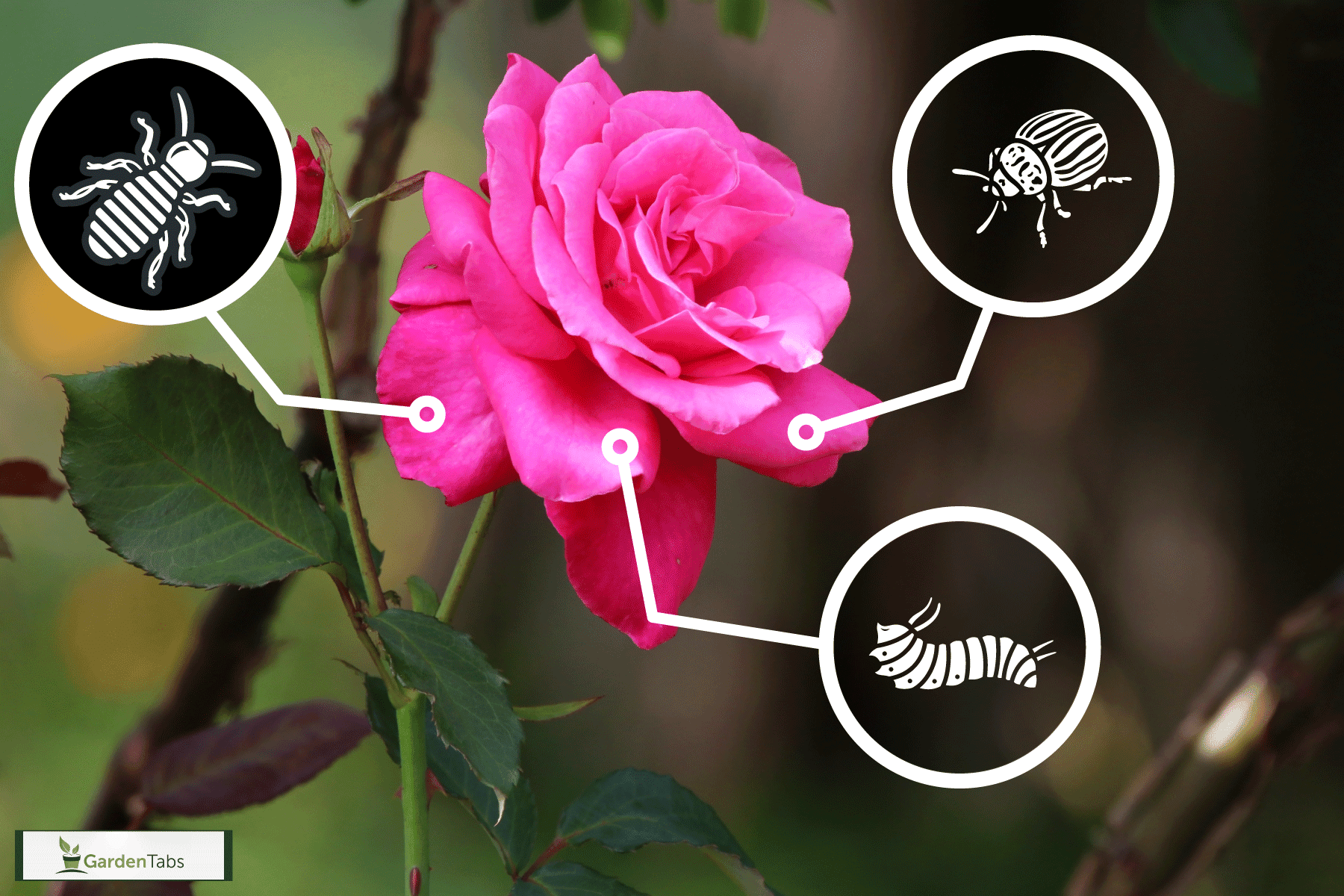
What Are The Pests That Strip And Damage Roses
Growing roses is all about rational thinking regarding choosing a variety and its location, caring for the rose, and taking preventative steps to keep it healthy.
As a general rule, a wide variety of organisms that feed on your roses might pose a significant threat to their health if left untreated.
Insecticide spraying is a common and successful traditional pest control method, but many natural options are also available.
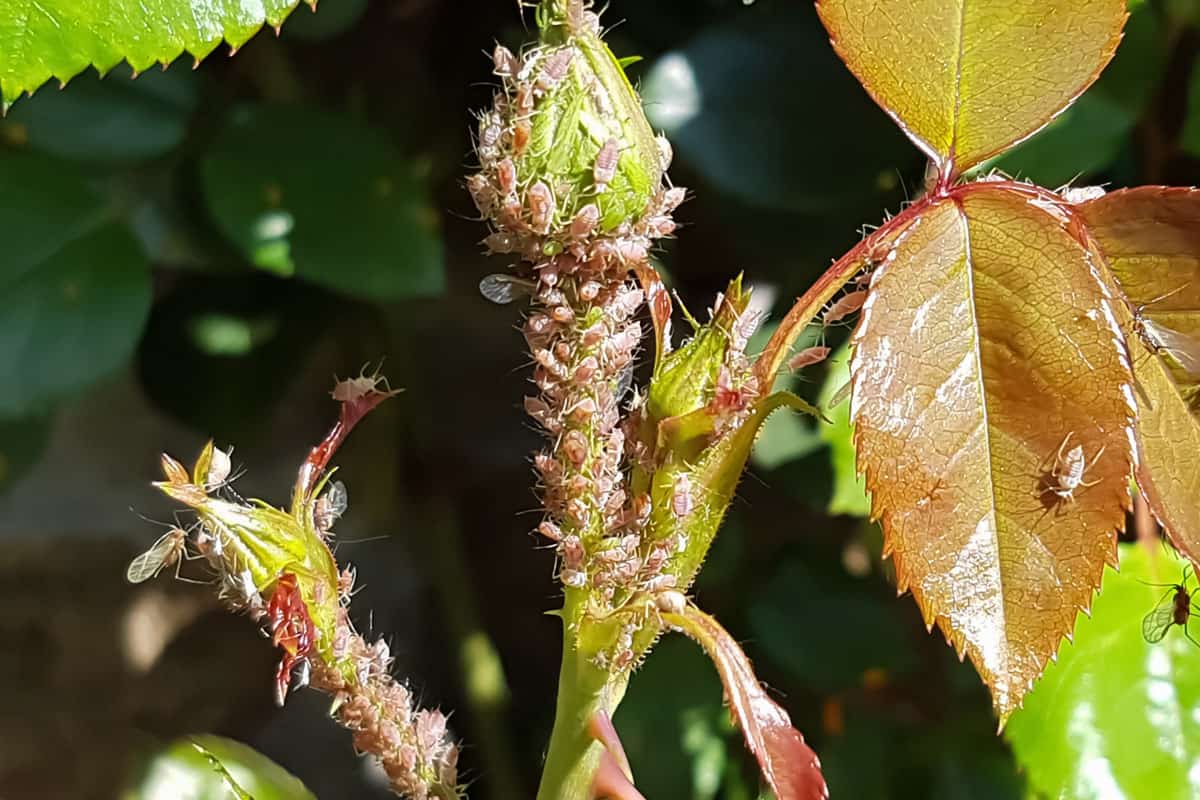
Utilizing natural ways to get rid of those damaging pests is a far better option for the environment. It includes introducing beneficial pests or predators and parasites, and you can also incorporate marigolds as a companion plant for your roses. Check the details below to see what pests are stripping your rose leaves.
Aphids
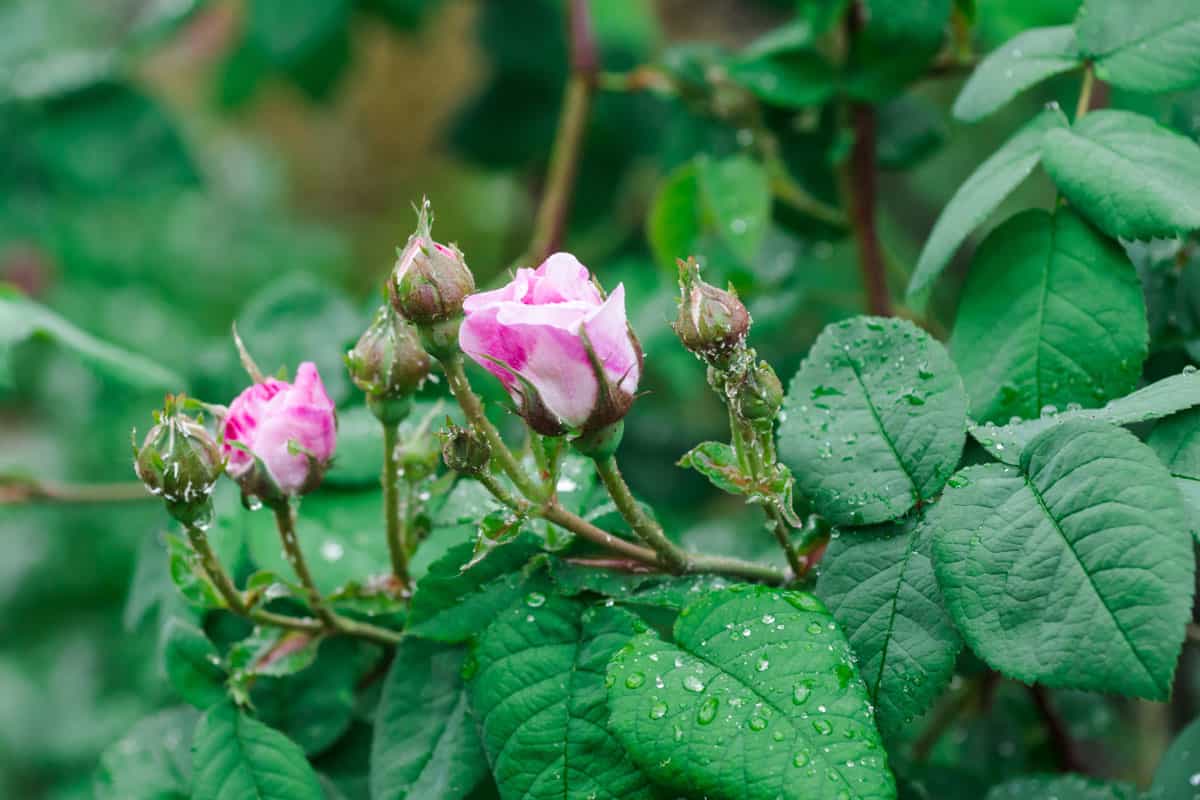
An infestation of aphids, like the well-known greenfly, will quickly ruin a floral harvest. Large numbers of them settle and multiply quickly.
You can find them on buds and sensitive young shoots, sucking the sap and causing the rose to deform. Additionally, they leave a sticky secretion every time they move from one place to another. This sticky substance is what we call honeydew, which attracts a blackish-gray fungus known as sooty mold.
There is a type of organic pesticide that works by covering the aphids with an adhesive substance, making them completely immobile. Alternatively, you can also utilize a solution of mild soap and water. However, none appear to be as successful as the chemical control.
Planting colorful bedding plants like marigolds and erecting nesting boxes are also great ways to attract ladybugs and small birds to your garden. Doing such is what we highly recommend since they are the natural predators of aphids.
But if you are going to ask us, the best way to handle these pests is still by using a systemic fungicide regularly. Since fungicides work from the insides of a rose plant, stubborn insects can't get inside it.
Caterpillars
Caterpillars will happily eat your rose leaves if you let them crawl up the stems of your flowers.
The sad thing about caterpillar infestations is that you will not notice their destruction until you discover significant portions of the leaves suddenly disappear. It is because a mother moth lays her eggs at the bottom of the rose's leaves.
So, it would be best to immediately remove and destroy the pests and infested parts once you notice them. And unfortunately, spraying with insecticide is the only option when too many of them are around your rose plants. Make sure to coat the leaf on all sides.
Cuckoo Spit Or The Froghopper Beetle
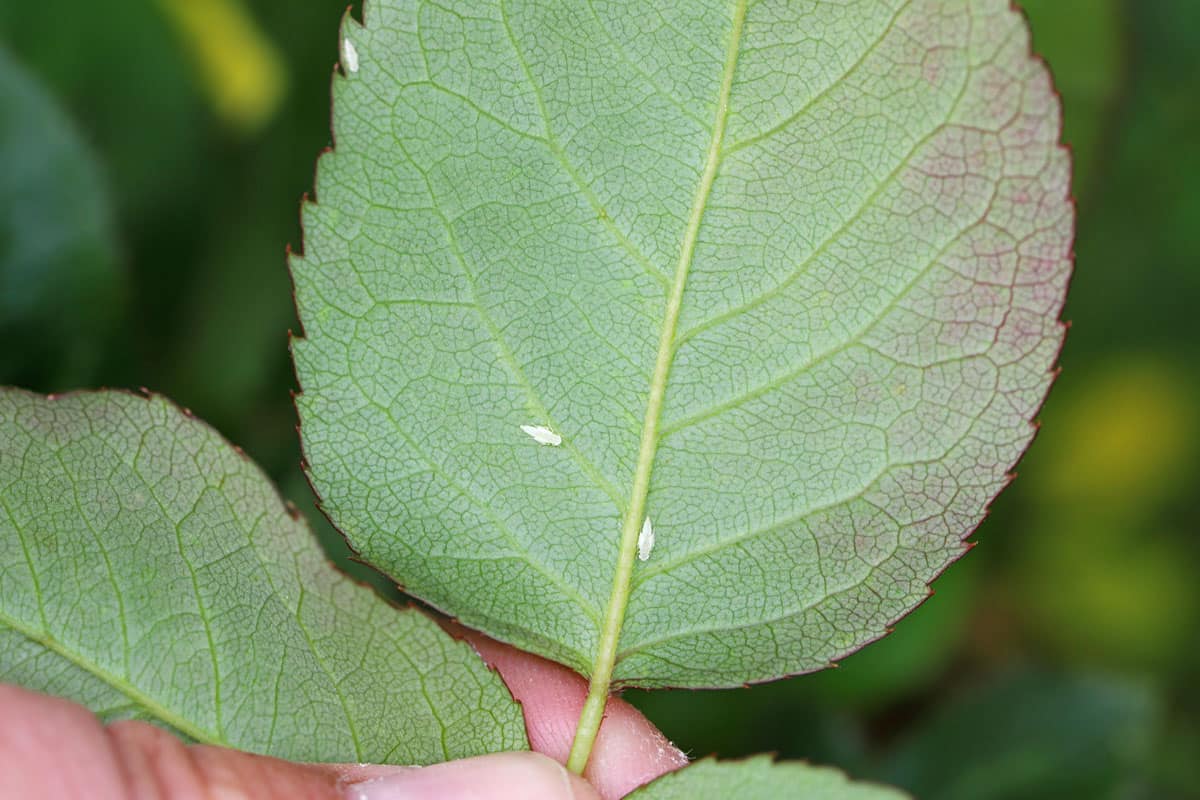
This kind of pest is more like an eyesore than plant-damaging. Often seen in leaf joints or around flower buds, it is a frothy white substance. And enclosed within it is an undeveloped froghopper beetle.
Once this immature froghopper beetle develops, expect that it will infest your rose plant by hopping around it and feast on the sap that they can search in fresh buds and shoots. The occasional withering bud isn't going to inflict much damage, and you can rarely encounter them in large numbers.
To solve this pest infestation and to keep a young frog-hopper in check, use a hosepipe to blow the cuckoo spit before it matures.
Deer
The chance of deer damaging your roses can increase if you live in a rural area. There is a greater risk of deer straying into the garden when there is thick snow on the ground. It is a more severe issue in the US, where deer are more aggressive.
Perimeter fencing can assist, but it's easy to overgrow it with roses, which puts them right in the deer's line of sight. You can deter deer by a little extra pruning around their boundary. In addition, if you want to get rid of deer in a better way, you can opt to plant thorny species like Rugosa.
Leaf Rolling Sawfly
When sawflies lay their eggs on rose leaves, the devastation can be visually alarming, and this bug can be a reason for concern. The adult sawfly will inject a chemical secretion into the rose's leaf, causing it to coil and shield the eggs.
And because they feed on the leaves, grubs are useless to plants once they hatch. Unfortunately, spraying will miss the grubs since they hide beneath the furled leaves and are unable to reach them. Taking out the leaves and burning them is the most effective control method. There is no long-term harm to the plant, but it may be a little more susceptible to illness than typical this year.
Rabbits
Tender fresh shoots are a favorite food of young rabbits, and they will carefully seek them out each spring. Older rabbits, particularly in the winter, can do significant damage by depriving the roses of their bark. The way they do it is that they often stand on their back legs to reach the more elevated stems. It can lead to a significant amount of harm to your rose plants.
You will need to take precautions to keep your roses safe if you reside in a location populated by this creature. Keep them out utilizing a wire mesh fence. However, before you do this, you have to make sure there aren't any rabbits around, or you'll just make things worse.
Rabbits can reproduce quickly. You can guard your rose plants against rabbits by creating individual fences around the base of each one while they are still immature, even though it is unattractive. There are also rabbit repellent chemicals that you can spray on the ground, although this method is never a hundred percent effective.
Red Spider Mites
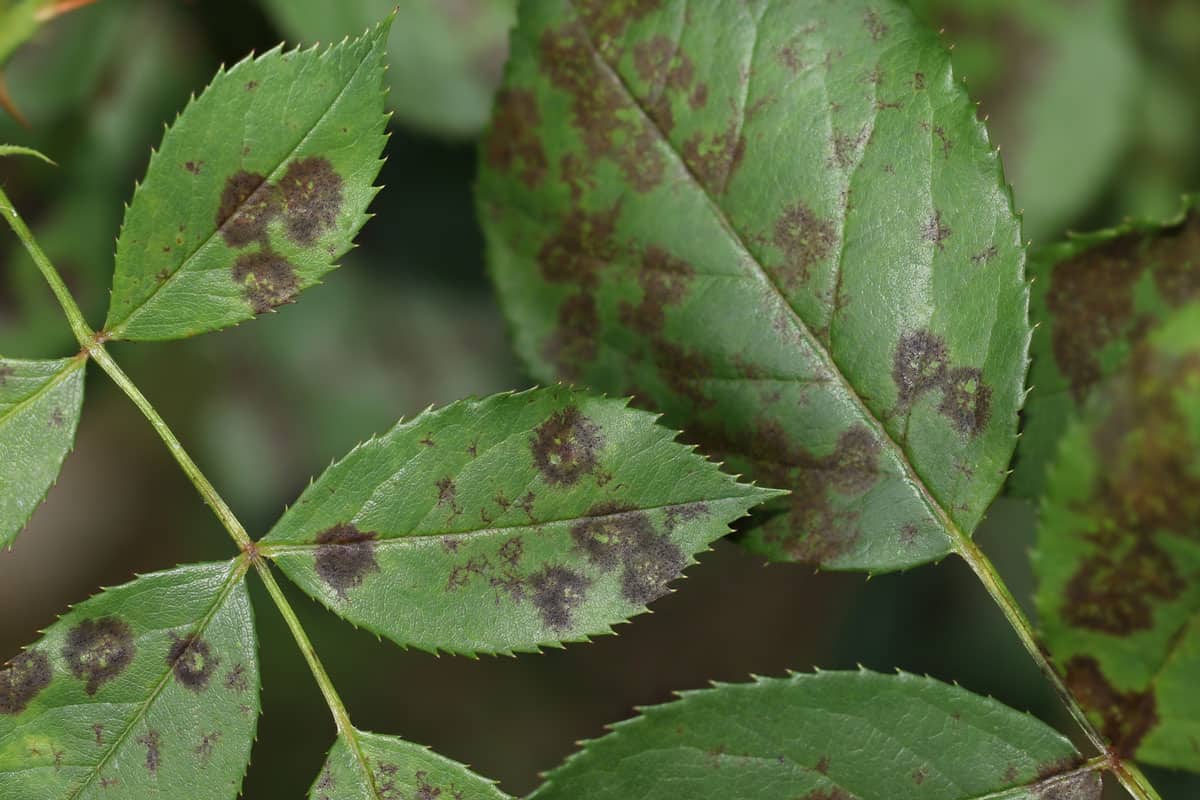
During hot, dry weather, this small mite prefers to live in greenhouses and conservatories because of the lack of humidity, although you can also find them in gardens. Despite the fact that it infests in large numbers, the mite is relatively small and therefore difficult to detect.
The telltale sign is the web of injury it causes to the leaves and the delicate web it forms between them. Before they fall, the leaves of the rose will turn light and lifeless, with a bronze discoloration, and they will look nearly dirty. Spraying the bottoms of the leaves is a simple cure, but the damage has already been done, so it might not help ultimately.
It's best to bring your plant outside for a while, sprinkle it with water, then wait for the spider mites to go or die, depending on the situation. Until you completely take down the spider mites from the garden, you should wash down your rose plants every day. However, you should attempt to do so in the morning or evening when the sun isn't as intense.
Rose Slug Sawfly
It's the larvae of the black fly that feasts from the rose leaf's flesh, leaving only a skeleton of veins behind. Spraying with insecticide is the only effective method of getting rid of them because they will eat an entire leaf before going on to the next.
Thrips
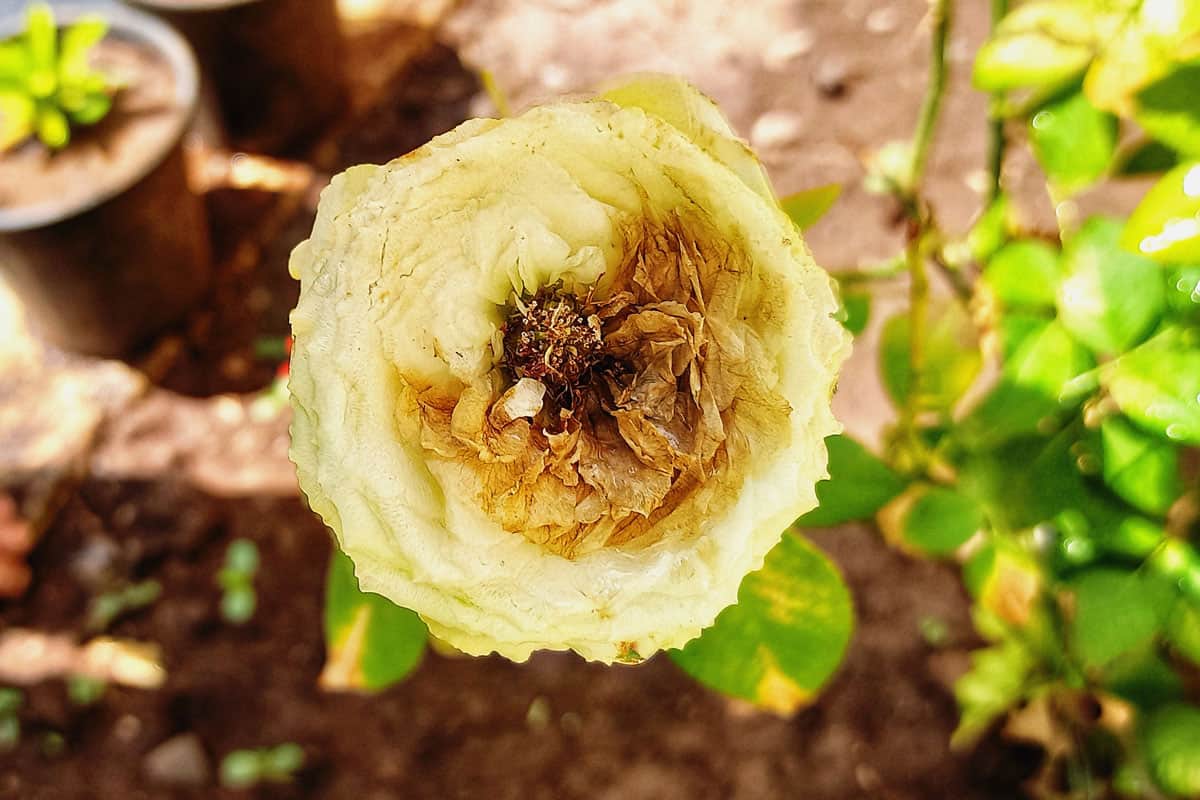
How To Take Care Of Roses
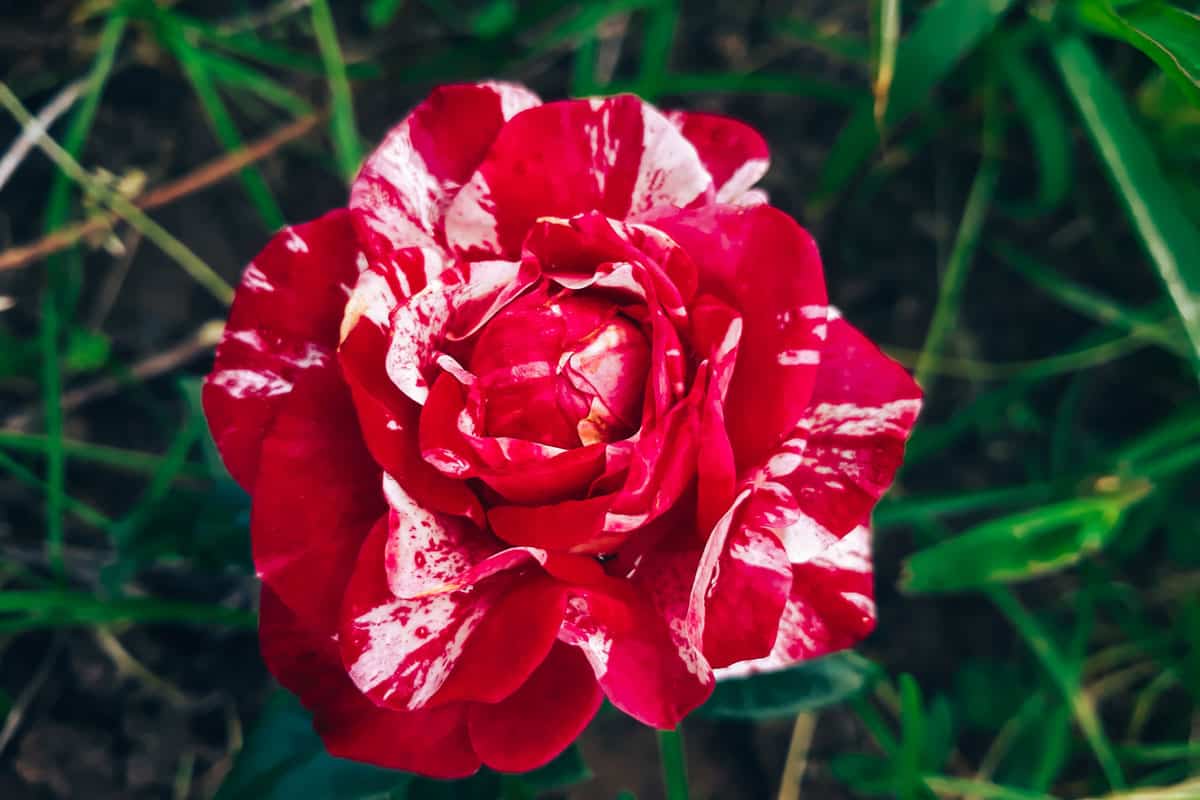
- Roses prefer direct sunlight. So, it would be best to place them in a location where they can get at least six hours of daylight.
- Planting your roses in adequately draining soil would help. And we suggest incorporating organic matter like ground bark or compost.
- Incorporate up to three inches layers of organic mulch around your rose plants.
- Using soaker hoses or drip irrigation, distribute water directly to the soil to keep roses well watered yet sparingly. Depending on the weather and the soil, roses will require different amounts of water. Water the soil frequently enough to maintain a constant moisture level — not too wet nor too dry.
- You should check your plants as often as possible to see if some insects or diseases damage them.
- Prune your rose regularly.
Wrap It All Up
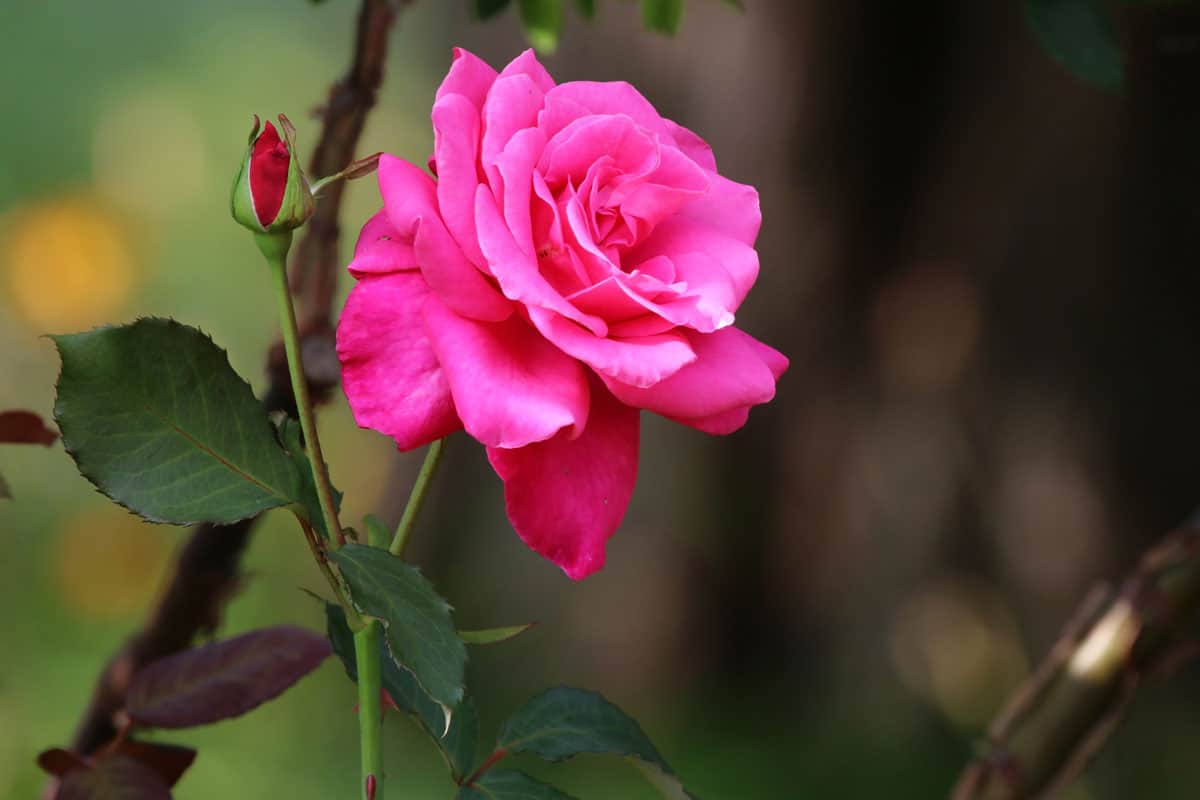
Once you notice some pests wreaking havoc on your rose plants, it would be best to get rid of them immediately and don't let the damage grow significantly. If you want your roses to grow beautifully, you must follow the tips we provided.
We hope you enjoyed reading this post. Please see the articles below to continue reading.
